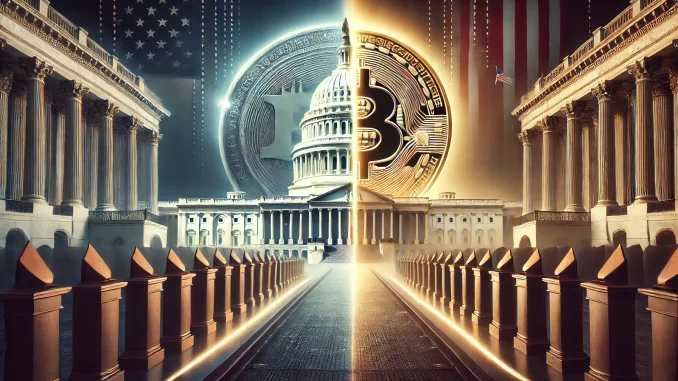
Table of Contents
Background on the Veto and the Legislation
Targeting the Securities and Exchange Commission’s (SEC) Staff Accounting Bulletin (SAB) 121, the U.S. House of Representatives lately sought to overturn President Joe Biden’s veto on H.J. Res. 109. Financial companies who provide crypto custody services must show these assets as liabilities on their balance sheets under this notice. Issued on May 31, 2024, the veto matched the bipartisan support for the measure found in Congress.
Important Information About the House Vote
The House voted July 11 to overturn the veto. Failing to muster the required two-thirds majority (290 votes), the vote came out 228 in favor and 184 against, therefore negating the presidential veto. Given the political gulf separating Democrats from Republicans, this result was expected and makes reaching a two-thirds majority in Congress difficult.
Consequences for the Banking Industry and Crypto Custodiation
The inability to supersede the veto keeps SAB 121 in force, therefore preserving the obligation for banks to record bitcoins within their care as liabilities. The financial sector has been divided about this control since it increases complexity and possible financial risk for institutions providing crypto custody solutions. Consequently, some institutions can find it less appealing to enter or keep in the crypto custody market, so restricting possibilities for consumers and companies looking for these solutions.
Legislators’ remarks and future prospects
Some legislators, including Rep. Mike Flood, saw the vote as a major statement even though the veto cannot be overturned. Flood claims that the vote showed a bipartisan majority in the House endorsing the cancellation of SAB 121. Emphasizing the historical significance of banks as reliable guardians in America, he supported regulatory cooperation so that banks may provide their custodial services to digital assets.
Flood and other supporters of SAB 121 intend to keep searching for other legislative or legal routes to handle the issues expressed by this law. This can entail fresh legislative initiatives, advocacy for regulatory changes, or other approaches to light the regulatory load on banks and support the expansion of crypto custody services in the United States.
Greater Context and Industry Reaction
The choice to keep SAB 121 has wider ramifications for American banking rules and the cryptocurrency sector. It draws attention to continuous conflicts between regulatory authorities and the developing digital asset industry, especially with relation to the handling of cryptocurrencies inside conventional financial systems.
Strong legislative rules have drawn criticism from industry players that would limit the competitive edge of American financial institutions in the worldwide digital asset market and impede innovation. Simultaneously, authorities stress in the fast expanding and sometimes turbulent crypto environment the need of openness, risk management, and consumer protection.
Finish: Looking Ahead
Stakeholders from all across the financial and cryptocurrency sectors will be closely observing changes as the discussion over SAB 121 and related rules goes on. The result of this legislative attempt emphasizes the difficulty of including digital assets into conventional financial systems and the necessity of constant communication among business players, legislators, and authorities.
Renewed efforts to solve these problems in future legislative sessions could result in more complex and fair rules supporting innovation while nevertheless guaranteeing financial stability and consumer safety. The crypto and banking industries have to negotiate the current legal environment for now, juggling compliance with the search of fresh business prospects in the expanding digital asset field.
For further insights, visit our cryptocurrency website
Explore more about [Bitcoin’s price movements and market trends]




Be the first to comment